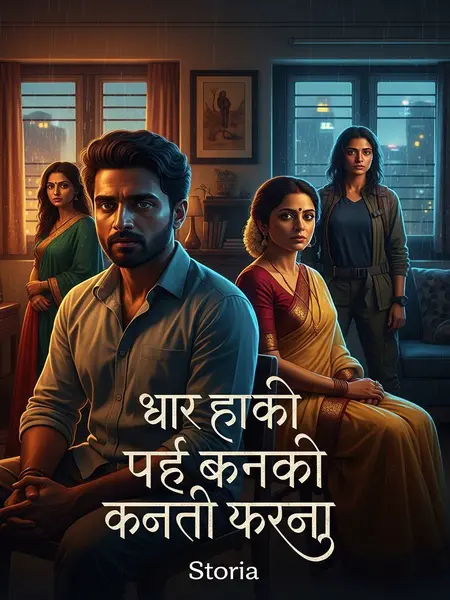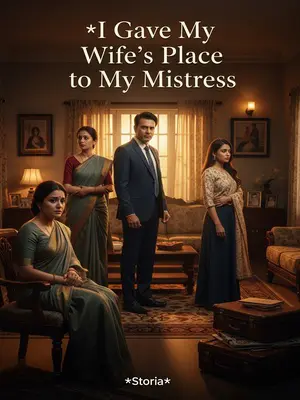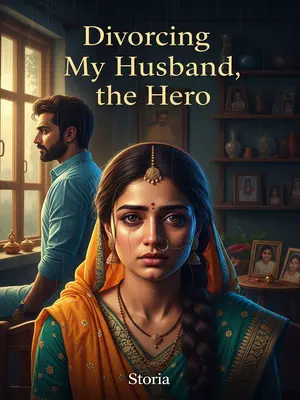Chapter 1: The Night the Stars Watched
That was the first day we met—
It was also the first day the nightmare began.
The air was thick with the promise of rain, and my shoes were already caked in red mud.
1
We had trekked through the hills for over six hours and were completely exhausted, but our group leader insisted we push on to the summit to camp.
The ache in our legs had become a dull throb, each step heavier than the last. Sweat glued our T-shirts to our backs, and the salty taste on our lips was half struggle, half anticipation. But no one wanted to be the first to whine; group izzat is a real thing. Someone muttered, “Yaar, this leader is a total Hitler,” and another quietly offered Parle-G biscuits, holding out the packet like a peace treaty. I took one, grateful, and we trudged on.
Someone massaged their calves, another checked their phone for signal—hoping for a miracle Jio bar. Our feet kept moving, driven by stubbornness and the silent judgment of strangers.
When night fell, we realised how wise that decision was.
The relief of dropping our rucksacks on the flat clearing was immense. As we collapsed, panting, the darkness wrapped around us and the wild world seemed to settle for the night—crickets chirping, an occasional hoot from deep in the jungle, and the distant honk of a lorry swallowed by the valley.
In the Satpura ranges, straddling the border between Madhya Pradesh and Maharashtra, lies the last stretch of untouched forest in Central India. The hills stretched endlessly; the Milky Way painted the sky above. Lying on the summit, gazing up at the shimmering stars, everything felt almost cinematic. For a while, the exhaustion melted into awe.
There was a strange magic in that wild patch, as if the mountain itself was breathing beneath us. The air carried a chill, a trace of wildflowers, and a rare freedom—no WhatsApp, no family drama—just your heartbeat and the velvet sky.
The local guide brought out his homemade mahua and a battered guitar. The guide poured mahua into battered steel glasses, passing them around like contraband. He sang a song he’d written himself, with a very rock-and-roll title: “There Are No Good People In This World.” We sat in a circle, drinking and singing, worries dissolving into the night.
The mahua hit hard—one sip and a warm glow crept into your stomach, laughter bubbling up. Somebody teased the guide about his lyrics, and he shot back, “Arrey, life has taught me!” with such a wicked wink that even the shyest among us cracked up. For a moment, we were all just desi strangers beneath the stars, our real lives forgotten somewhere far below.
It was deep into the night before we returned to our tents.
Our bones ached, but our hearts felt lighter. Through the thin canvas, I heard muffled snores from nearby tents, someone muttering in their sleep, and the wind flicking the tent flap.
And then, she came.
She quietly unzipped my tent. A faint, alluring fragrance crept in with her.
The smell was unexpectedly fresh, like jasmine after the first summer rain—definitely not the usual trekker’s stench. For a heartbeat, I wondered if I was dreaming, but the zip’s rasp and the soft crunch of her shoes on the tarp snapped me awake.
She must have just spritzed perfume; after a day’s slog, only a city girl would think of that. I felt a weird admiration—she’d probably hidden a tiny bottle among her hand sanitizers and protein bars, her own secret weapon.
“Soye ho kya?” she asked, sitting down beside me.
Her voice was low, a murmur just above a whisper, but it sent a tingle up my spine. I wiped my palms on my track pants, suddenly aware of how bad I must smell. Fumbling for my torch, I almost knocked over my water bottle. My brain whirred—was she lost? Snake in her tent? Or… something else?
My drowsiness vanished. I sat up, peering at her in the dim light.
There were five men and three women in our group, but she was the most striking by far.
Even in a crowd of seasoned trekkers, she stood out. The kind of woman you’d expect at a Bandra art gallery, not halfway up a wild mountain. I remembered her laughing at the guide’s jokes earlier—bold, genuine, never loud.
Slender face, delicate features, a pink baseball cap giving her a mysterious, youthful air. Long legs in tight jeans, glimpses of fair skin at the ankles—unforgettable.
There was something bold in the way she sat, not self-conscious at all, as if the world belonged to her. Maybe it was city confidence, or maybe she’d just never learned to hide.
She sang beautifully—her English songs were as flawless as her Hindi ones.
I remembered her voice during the singing, clear as temple bells. When she sang Kishore Kumar, everyone fell silent; when she switched to Adele, even the guide looked impressed. The kind of girl who’d inspire you to write poetry just for a smile.
But for now, we were just a group of strangers thrown together by fate. There’d be no story after this.
It’s the unspoken rule of every Indian group trip: what happens on the trek, stays on the trek. Real life—family, society—waits below.
So I just soaked it in—travelling with a beautiful woman made the hills look even better.
Sometimes, you just have to enjoy what’s in front of you, na?
I never expected that, right then, she’d choose to sit next to me, her profile touched by torchlight.
Her eyes glimmered in the faint glow, cheeks flushed from cold or maybe the mahua. It felt like one of those old Hindi film scenes—the world silent outside, only my heartbeat thudding in the tent.
“Want to do it once?” she asked.
Her directness made me choke. Was I dreaming? My mind scrambled for meanings, but the look in her eyes was clear.
“Kya karna hai, yaar?” My heart hammered. I had an idea, but didn’t dare assume.
In school, they tell us not to jump to conclusions, but right now my whole body tingled with hope and fear. My pulse was louder than her words.
She took off her cap and shook out her hair. The air in the tent softened.
Her hair fell in a shiny curtain, the sweet scent of apple shampoo drifting over. I felt clumsy, like a college kid at his first fest.
“If you hesitate any longer, you’ll miss your chance.” She moved closer.
Her voice teased, but her eyes were serious. A hush grew between us, our knees nearly touching in the cramped space.
Her eyes were wide, like the stars overhead.
In that moment, everything else—the group, the jungle, my old life—vanished. Only her eyes, full of promise and mischief, remained.
“Isn’t it a bit inappropriate? Tents are so close,” I said. It wasn’t a refusal; my heart was racing. I’m no enlightened baba—my mind was anything but calm.
My protest was half-hearted, a feeble wall against the wildness inside me. In India, we’re taught to be careful about these things. But whom was I fooling?
“Come look at the stars with me again.” She leaned in, her breath warm in my ear. “Just behind your tent, there’s a slope.”
Her breath sent a shiver down my spine. For a second, I forgot where I was. The world shrunk to just us.
She smiled and slipped out of the tent, silent as a cat.
Her exit was as quiet as her entry—no rustle, no fuss. I watched the zip drop and felt my resolve waver. Inside, my conscience and desire wrestled like two old uncles fighting over cricket.
I wanted to calm down, but couldn’t.
I wiped my palms on my track pants, suddenly aware of how bad I must smell. My hand hovered in the air, unsure. For a second, I almost pulled back—then her fingers found mine.
My hand trembled as I reached for my slippers. The night outside was impossibly still, every decision echoing in my head.
In the wilderness, a chance meeting, just seeking a moment’s pleasure.
In the city, people book hotels and delete chats. Here, under ancient stars, it felt risky and free, like we’d stepped into a legend.
We didn’t even know each other’s names.
Somehow, that made it easier. No expectations, no stories—just now.
I unzipped my sleeping bag and slipped out quietly.













